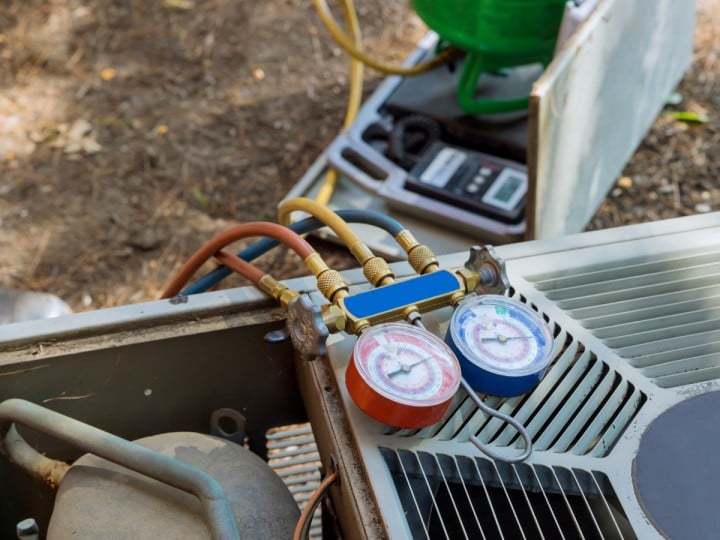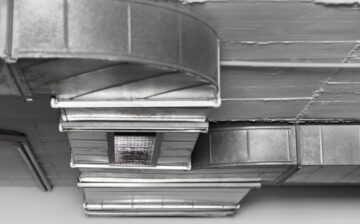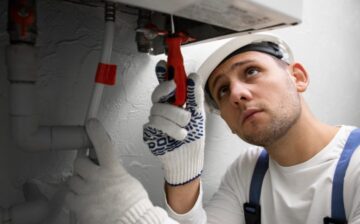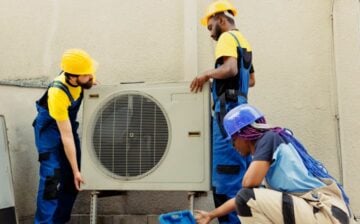Many people are confused when it comes to the differences between HVAC units and air conditioners. Despite having distinct definitions, many still find it hard to understand the difference between the two. Contractors and manufacturers further add to the confusion because they often use HVAC and AC interchangeably.
The HVAC System
HVAC stands for heat, ventilation, and air conditioning, a system that controls air quality, temperature, and humidity in an indoor area. The acronym describes the three different functions of the HVAC system, as they are installed in modern homes and buildings.
The HVAC system typically includes an air conditioning system, the furnace, and any ducts or vents that help release moisture. All HVAC units can be equipped with an air conditioner, but not all ACs have an HVAC network.
How Long Do HVAC Systems Last?
Most residential HVAC systems last from 10 to 25 years. However, this can be affected by such factors as the frequency of inspection for your HVAC system, the temperature levels in your area, the general climate, and the configuration of your HVAC unit (e.g., whether it has a boiler or furnace).
Types of HVAC Systems
According to a professional for HVAC installation in San Jose, the HVAC system can be classified broadly as either ductless or ducted. In more specific terms, however, the system can fall into the following categories:
1. Split System
Split systems are the most common type of HVAC. They are usually found in residential areas and have two separate components. One is for heating, the other for cooling. Their thermostats control the temperature in a structure using traditional settings.
Split systems usually have their heating unit in the basement or a utility closet. The cooling system, meanwhile, is located outside but is connected to the ductwork via a series of tubes.
2. Hybrid Split System
This HVAC system is powered by electricity and uses a combination of heating and cooling units. Heating is slower and less efficient with this system. However, homeowners prefer the hybrid split system because it affords them better control over their energy consumption.
3. Zoned System
HVAC zoning systems can regulate the temperature of different rooms or areas in a home or building. There are many ways to install zone-ducted HVAC systems. However, the most crucial consideration is the size of the property.
4. Packaged Heating and Cooling System
This HVAC system is known for its compact or portable size. It is commonly found in homes with limited storage space and typically stores its cooling and heating components in one unit. A hole in the wall can be used to connect the system to a building’s supply and return ducts.
5. Hydronic Heating
This HVAC system differs from the others because it relies on liquid, not air, when generating heat. The system boiler distributes the produced heat via a network located below the floors of a building. Once the liquid heat has reached a radiator or a baseboard heater, it can begin warming the area.
6. Ductless Mini-Split System
Ductless HVAC systems are suitable for single rooms and are commonly found in hotels and offices. They are sometimes referred to as mini-splits, and their major components include a heat pump, a thermostat, an indoor air handling unit, an outdoor compressor, and a condenser.
7. Portable Heat Pump System
When the heating mode of this HVAC system is turned on, portable heat pumps will draw in air from the outside and run this through a condenser coil. A portable heat pump or reversible portable air conditioners is perfect for either cooling or heating a residential home.
8. Portable Spot Cooler System
These HVAC cooling systems can be placed anywhere in your home so long as there is available electricity. It can be challenging, though, to find an area where their exhaust system can be installed.
This HVAC type cools the air and pumps out warm air through a flexible exhaust pipe. To prevent warm air from entering, the tube can be easily extended.
Key Takeaway
Many people actually believe that HVAC systems and air conditioners refer to the same thing. This is an incorrect assumption, but it is a common mistake. This is because most air conditioner manufacturers use the two terms interchangeably. Also, most people hardly care if an AC is different from an HVAC. All they want is a financed AC that can help them cool down, especially during scorching days.
To clarify, however, air conditioners are not the same as an HVAC system. An air conditioning unit is just one component of the HVAC network. The latter involves a wider coverage because, apart from the AC, it also has heating and ventilation units under its fold. All of the parts comprise one system even as each one of them has separate and distinct functions.
We hope you found this blog post on The HVAC and the AC: Is There a Difference Between the Two? useful. Be sure to check out our post on Ductless HVAC Vs Central HVAC – Which Is Better? for more great tips!
Have Experience in the Moving Industry? Want an Additional Income Stream? Work With All Around Moving!
Partner with us and join the Work With Us program. We will help you make money arranging professional moving services, by establishing your own moving consultant business operation. Click here to learn more. A nominal one-time start-up fee of $275.00, gives you the “key” to have your business up and running. There is $125.00 monthly recurring expense, and the cost of purchasing your own type of leads you want to work on.






